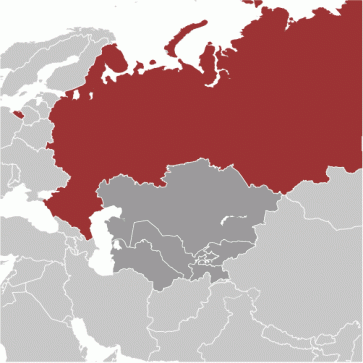
Let’s not forget about Russia
This is a cross-post post from The Hill.
It has now been over a year since Vladimir Putin ordered Russian forces to invade sovereign Ukrainian territory, then annexed Crimea. Since that time the Kremlin has continued to support the destabilization of eastern Ukraine and has stepped-up propaganda, political agitation, energy blackmail and also military pressure against its neighbors and other NATO members.
Last week I traveled to the Baltics to see for myself the kind of pressure the Kremlin is trying to exert on our NATO allies there. At the same time Congress is moving forward with mark-ups for funding our national security.
I saw that Russia is increasingly belligerent, made clear with its hostilities in Ukraine, and has increased posturing in the Baltic region and other allied countries across Eastern Europe. This has also included cyber attacks on our homeland. Russian hackers have taken direct, hostile action against U.S. cyber systems, including the White House, the State Department, and the Department of Defense, among many others.
We have also seen intimidation from Russia in their testing of new offensive weapons systems. Their testing of new missile technologies represents a direct, nuclear threat to Europe – and American interests in the region.
There are four key actions the United States should enact to strengthen ourselves and our allies against this Kremlin aggression and promote a stronger alliance.
First we have to stop supporting the Russian military industrial complex. It still is shocking that to launch our military and intelligence satellites we use Russian built engines – the RD180 under the EELV Program. With these rocket engine purchases, the United States is directly funding the very missiles we are protesting against. Deputy Prime Minister Dmitry Rogozin, who oversees Russia’s space sector and the sales of the engine, explicitly stated that ““[P]resently, the sale of engines [to the U.S.] benefits our engine-making enterprises in that they use the money for their own modernization ….We need the most modern engines that produce more thrust. In order to design them, we need free money. This is why we are prepared to sell them.” Congress and the administration need to act quickly to turn this funding mechanism off for the Kremlin.
This does not mean that the Federal Government should be spending of hundreds of millions of dollars of additional spending to develop a new, taxpayer-funded rocket engine, when there already are two U.S. providers operating domestic systems today that together can perform the full spectrum of DOD launchs. In the present House Armed Services Subcommittee on Strategic Forces markup, it is important that Congress stands up for our values of liberal economics and using the private sector for the answers we need, instead of relying on Soviet-style waste.
Second we have to step-up our own positive public diplomacy matched with countering the wave of Russian propaganda aimed at Russian-speaking peoples all across Eastern Europe. Congress will need to increase its support for the United States’ broadcasting arms such as VOA, RFE and other broadcasting systems, and more importantly it will mean larger support for grants and investment in private media companies all across Eastern Europe and Central Asia.
Third, we have to strengthen our NATO military alliance. We should reassure our allies, especially in Eastern Europe and the Baltics that we take Article 5 of the NATO Treaty very seriously, and as such deploy more U.S. and Western European troops to each country in the east. It should also mean that NATO member countries need to live up to their commitments and spend 2 percent or more of their GDP on their military, right now only a very few member countries achieve this. For NATO to be taken seriously and counter the Russian aggression in the East, all member states need step up to the challenge.
Finally we need to move forward with a deeper economic alliance with the European Union under the Transatlantic Trade and Investment Partnership (TTIP). TTIP, through wide economic cooperation and growth, will allow increased support for NATOs military, create lasting links between member states economies and peoples, and can show Russians what the future can be when their government works with NATO, the U.S. and the EU, instead of against them.
It is with these four key actions, stopping supporting Russian military development, increasing our voices and values, strengthening NATO and committing ourselves to deeper economic ties that we can counter Kremlin aggression.







[…] Our Flashpoint Blog Let’s not forget about Russia Paul Hamill It has now been over a year since Vladimir Putin ordered Russian forces to invade […]
Agree completely.